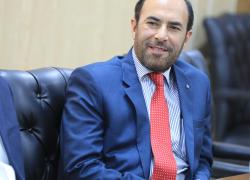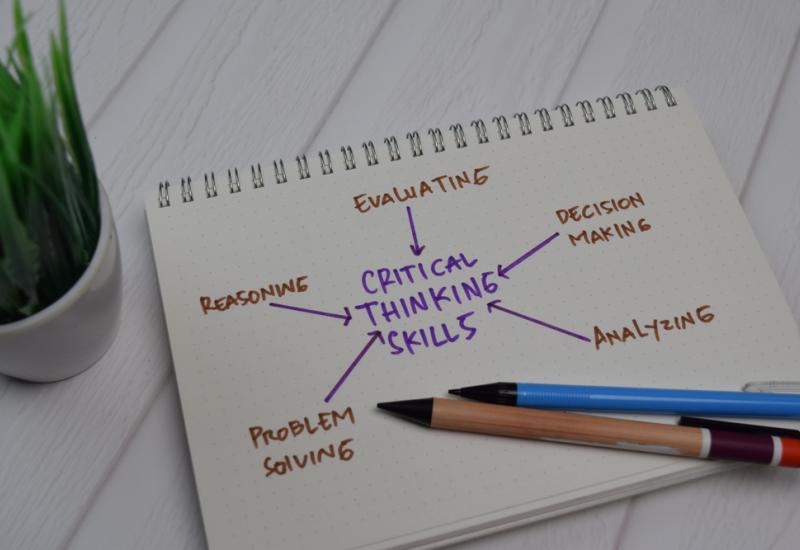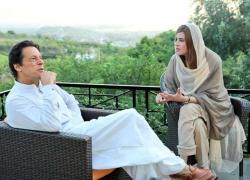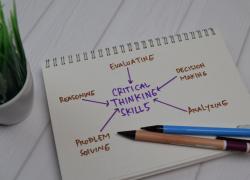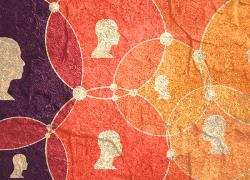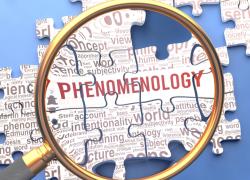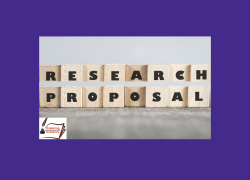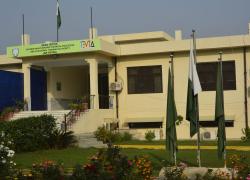The Power of Critical Thinking in Effective Problem-Solving
In the world of intellectual pursuits, critical thinking acts as a beacon, guiding minds through the complexities of ideas, challenging assumptions, and inviting a deeper exploration of the world around us. However, as with any powerful tool, questions linger—does the application of critical thinking necessarily lead to positive outcomes, or can it, at times, be a double-edged sword?
This blog post explores the paradox of critical thinking; a phenomenon that on one hand, empowers individuals to gather information, make informed decisions, and address the complexities of the modern world, while on the other, introduces a potential for uncertainty, indecisiveness and deviation from established norms.
Is critical thinking a positive force propelling us towards enlightenment, or does its unwavering scrutiny risk undermining the very foundations of certainty? In this write-up, we discuss the complex nature of critical thinking, unraveling its potential benefits and pitfalls, and questioning whether its application is a positive force or a more complex interplay of perspectives.
Critical thinking is a valuable skill that offers numerous benefits across various aspects of life, including academic, professional, and personal domains. Here are some key benefits of critical thinking:
What are the potential benefits of Critical Thinking?
Critical thinking is a crucial skill that offers a multitude of benefits in various aspects of life. It empowers individuals to make informed decisions, solve problems effectively, communicate persuasively, and cultivate a deeper understanding of the world around them. Let’s delve into the potential benefits of critical thinking:
- Enhanced decision-making:
Critical thinking equips individuals with the ability to analyze complex situations, evaluate information objectively, and weigh various options carefully. This leads to more informed and rational decision-making, minimizing the risk of impulsive or ill-considered choices. Critical thinkers can navigate complex dilemmas, assess risks and potential outcomes, and make sound decisions that align with their goals and values. Critical thinkers consider multiple perspectives, gather relevant information, and weigh evidence before making decisions. It helps in minimizing the impact of personal biases, allowing for more objective and rational decision-making.
- Effective problem-solving:
Critical thinking provides a structured approach to problem-solving, enabling individuals to identify the root causes of issues, generate creative solutions, and evaluate their effectiveness. By breaking down problems into smaller, manageable parts, critical thinkers can systematically approach challenges and devise solutions that are likely to succeed. It fosters a problem-solving mindset, allowing individuals to tackle obstacles with confidence and ingenuity. It enables individuals to analyze problems systematically, identify root causes, and develop effective solutions. It fosters creativity, allowing for the generation of innovative ideas and approaches to problem-solving.
- Persuasive communication:
Critical thinking enhances communication skills by enabling individuals to express their ideas clearly, concisely, and supported by evidence. Critical thinkers can articulate their thoughts logically, structure their arguments effectively, and address opposing viewpoints with respect. This ability to communicate persuasively is essential for success in various settings, from professional presentations to personal interactions. Critical thinkers can articulate their thoughts clearly, conveying complex ideas in a coherent and understandable manner. It facilitates active listening, enabling individuals to comprehend others’ viewpoints and engage in meaningful conversations.
- Deeper understanding of the world:
Critical thinking cultivates a deeper understanding of the world around us by fostering an inquisitive and analytical mindset. Critical thinkers question assumptions, challenge conventional wisdom, and seek out diverse perspectives. This inquisitive nature leads to a more nuanced and comprehensive understanding of complex issues, enabling individuals to form well-informed opinions and engage in meaningful discussions. Critical thinkers approach conflicts with objectivity, assessing different perspectives to arrive at fair and reasoned resolutions. It equips individuals with the skills needed for effective negotiation and compromise.
- Personal growth and development:
Critical thinking plays a significant role in personal growth and development. By fostering a questioning attitude and a willingness to challenge one’s own beliefs, critical thinking promotes intellectual curiosity, open-mindedness, and a lifelong love of learning. Critical thinkers are constantly seeking new knowledge, expanding their horizons, and refining their understanding of themselves and the world.
- Academic success:
Critical thinking is a cornerstone of academic success. It empowers students to analyze complex concepts, evaluate information critically, and form their own interpretations. Critical thinking skills are essential for success in various academic disciplines, enabling students to engage with course material in a meaningful way, synthesize information effectively, and produce high-quality work. Critical thinking promotes a deeper understanding of academic subjects by encouraging students to question, analyze, and synthesize information. It enhances the ability to learn independently, fostering a lifelong commitment to learning.
- Professional advancement:
Critical thinking is a highly valued skill in the workplace. Employers seek individuals who can analyze complex problems, make sound decisions, and communicate effectively. Critical thinkers are adaptable, resourceful, and capable of navigating challenges in a dynamic work environment. Their ability to think strategically and solve problems creatively makes them valuable assets to any organization. It encourages self-reflection, helping individuals become more aware of their beliefs, values, and biases. It fosters a mindset of continuous improvement, motivating individuals to refine their thinking processes over time.
- Civic engagement and informed citizenship:
Critical thinking is essential for informed citizenship and effective participation in civic life. It enables individuals to critically evaluate political discourse, assess the credibility of information sources, and make informed decisions about public issues. It fosters an active and engaged citizenry, capable of contributing to the democratic process and making decisions that benefit society as a whole. It empowers individuals to be informed and engaged citizens, capable of evaluating political information and making informed choices. It encourages a sense of social responsibility by prompting individuals to critically assess societal issues and contribute to positive change.
- Emotional intelligence and resilience:
Critical thinking can contribute to emotional intelligence and resilience by fostering self-awareness, self-reflection, and the ability to manage emotions effectively. Critical thinkers can identify and understand their own biases and emotional tendencies, enabling them to make more rational decisions and maintain composure in challenging situations. It promotes resilience by helping individuals adapt to change, cope with setbacks, and persevere in the face of adversity.
In essence, critical thinking is a cornerstone skill that not only enhances cognitive abilities but also empowers individuals to navigate an increasingly complex and interconnected world with confidence and clarity. In conclusion, critical thinking is a transformative skill that empowers individuals to thrive in various aspects of life. It fosters informed decision-making, effective problem-solving, persuasive communication, and a deeper understanding of the world. Critical thinking is a valuable asset for academic success.
Is Critical Thinking a positive or negative phenomenon?
Critical thinking is a predominantly positive phenomenon. It encourages individuals to actively engage with ideas and situations analytically and impartially, rather than passively accepting information or opinions as fact.
Critical thinking is typically seen as a positive skill. It allows us to make better decisions, solve problems more effectively, and communicate more persuasively. It can also help us to be more open-minded, objective, and unbiased. However, critical thinking can also be used in a negative way. For example, it can be used to manipulate or deceive others, or to justify harmful or unethical behavior. Ultimately, whether critical thinking is used for good or evil depends on the intentions of the person using it.
Overall, critical thinking is a valuable skill that can be used to make the world a better place. However, it is important to use it responsibly and ethically. Here are some examples of how critical thinking can be used positively:
- Making informed decisions: Critical thinking can help us to gather and evaluate information, consider different perspectives, and weigh the risks and benefits of different options before making a decision.
- Solving problems effectively: Critical thinking can help us to identify the root cause of a problem, brainstorm potential solutions, and evaluate the effectiveness of different solutions.
- Communicating persuasively: Critical thinking can help us to construct clear and concise arguments, use evidence effectively, and anticipate and address counterarguments.
- Being more open-minded: Critical thinking can help us to challenge our own assumptions, consider different perspectives, and be open to new ideas.
- Being more objective: Critical thinking can help us to set aside our own biases and prejudices and evaluate information in a fair and impartial way.
It’s important to note that critical thinking does not mean being critically minded or negative. It’s about analyzing and evaluating information comprehensively and objectively to inform your decisions, which is a valuable life skill. However, like any process or skill, critical thinking can have potential drawbacks if misapplied. Individuals may get stuck in analysis paralysis, spending too much time thinking and evaluating instead of taking action. It can also possibly lead to skepticism or cynicism if it’s not balanced with open-mindedness or if applied to the extreme. Here are some examples of how critical thinking can be used negatively:
- Manipulating or deceiving others: Critical thinking can be used to create misleading arguments, distort facts, and exploit others’ vulnerabilities.
- Justifying harmful or unethical behavior: Critical thinking can be used to rationalize harmful or unethical behavior by finding justifications for it, even if those justifications are not sound.
- Using information to harm others: Critical thinking can be used to gather and use information in a way that harms others, such as by spreading misinformation or using personal information to blackmail or extort someone.
- Being overly skeptical or cynical: Critical thinking can lead to an overly skeptical or cynical mindset, making it difficult to trust anyone or anything.
- Being paralyzed by analysis: Critical thinking can sometimes lead to overthinking, making it difficult to make decisions or take action.
It is important to remember that critical thinking is a tool, and like any tool, it can be used for good or evil. The key is to use critical thinking responsibly and ethically and to be aware of the potential for it to be used in a negative way. In sum, when practiced correctly and effectively, critical thinking is far more of a positive phenomenon than a negative one. It plays a key role in enhancing our understanding of the world, making informed decisions, and progressing personally, academically and professionally.
Conclusion
In navigating the labyrinth of critical thinking, we find ourselves at the crossroads of empowerment and caution—a juncture where the paradoxical nature of this cognitive skill becomes apparent. Is critical thinking a positive force, propelling us toward enlightenment, or does its constant scrutiny risk undermining the very foundations of certainty?. As we reflect on our investigation, it becomes clear that the answer lies not in an absolute affirmation or negation but in the delicate dance between the positive and potentially negative facets of critical thinking. This cognitive tool, like any potent force, requires a mindful approach, acknowledging its power while understanding its nuances.
On the positive side, critical thinking emerges as a beacon guiding us through the complex terrain of problem-solving, decision-making, and innovation. It fosters effective communication, analytical prowess, and success in academic pursuits. Yet, the caution arises in recognizing that an excessive emphasis on skepticism may lead to analysis paralysis, a perpetual questioning that challenges not only flawed assumptions but potentially valid foundations.
In conclusion, critical thinking is not a phenomenon to be categorized as wholly positive or negative. Instead, it is an instrument that demands balance—a delicate interplay between inquiry and discernment. As we continue to harness the power of critical thinking, let us do so with an understanding of its dual nature, striving for a harmonious integration that allows for both the empowerment of intellect and the recognition of the importance of foundational truths.


